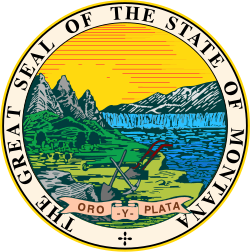| |||||||||||||||||
| |||||||||||||||||
Baucus: 40–50% 50–60% 60–70% 70–80% Cozzens: 40–50% 50–60% | |||||||||||||||||
| |||||||||||||||||
| Elections in Montana |
|---|
 |
The 1984 United States Senate election in Montana took place on November 6, 1984. Incumbent United States Senator Max Baucus, who was first elected in 1978, ran for re-election. He easily won renomination in the Democratic primary, and advanced to the general election, where he faced Chuck Cozzens, a former State Representative and the Republican nominee. Despite President Ronald Reagan's strong performance in the state that year, Baucus was able to easily win a second term over Cozzens.



